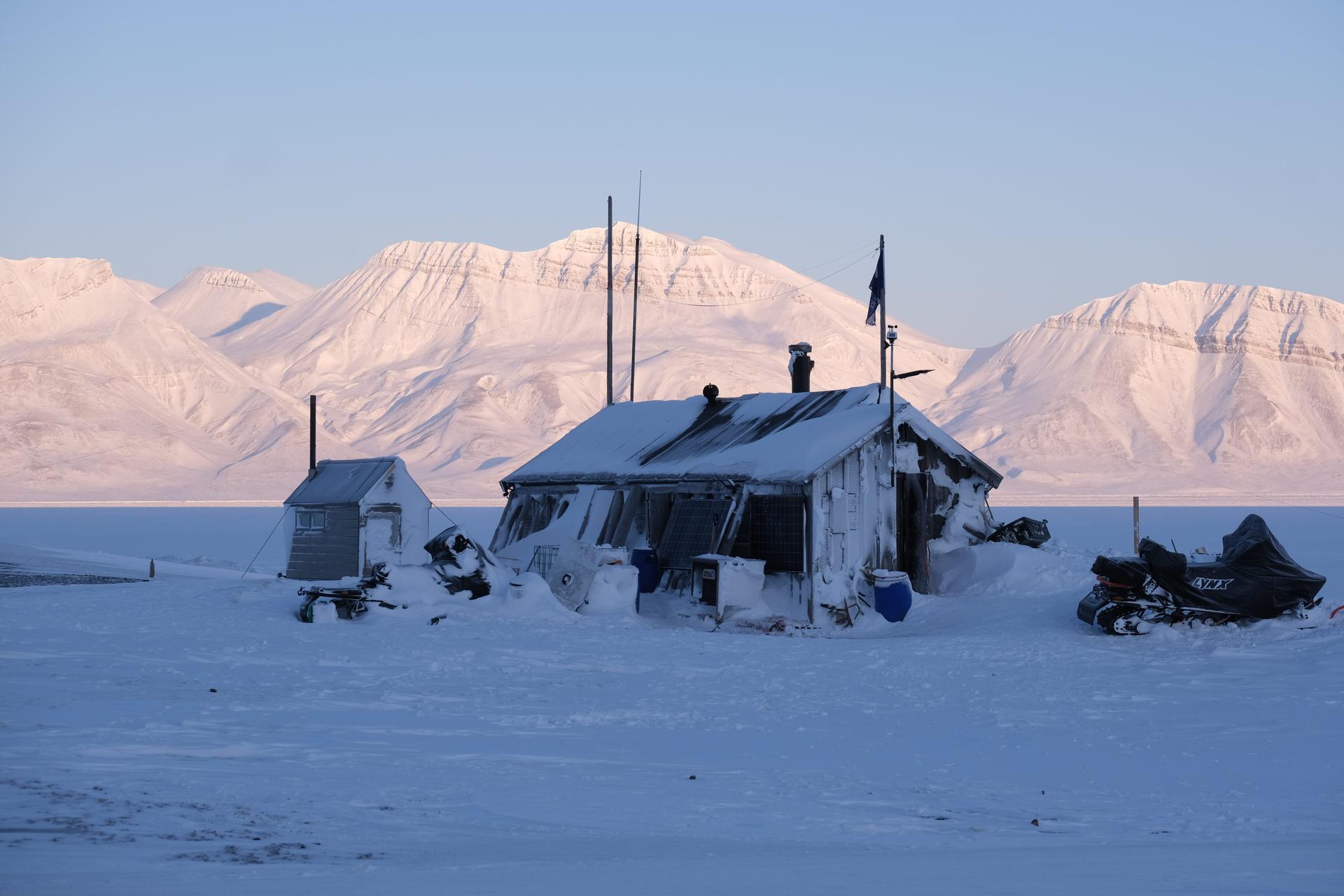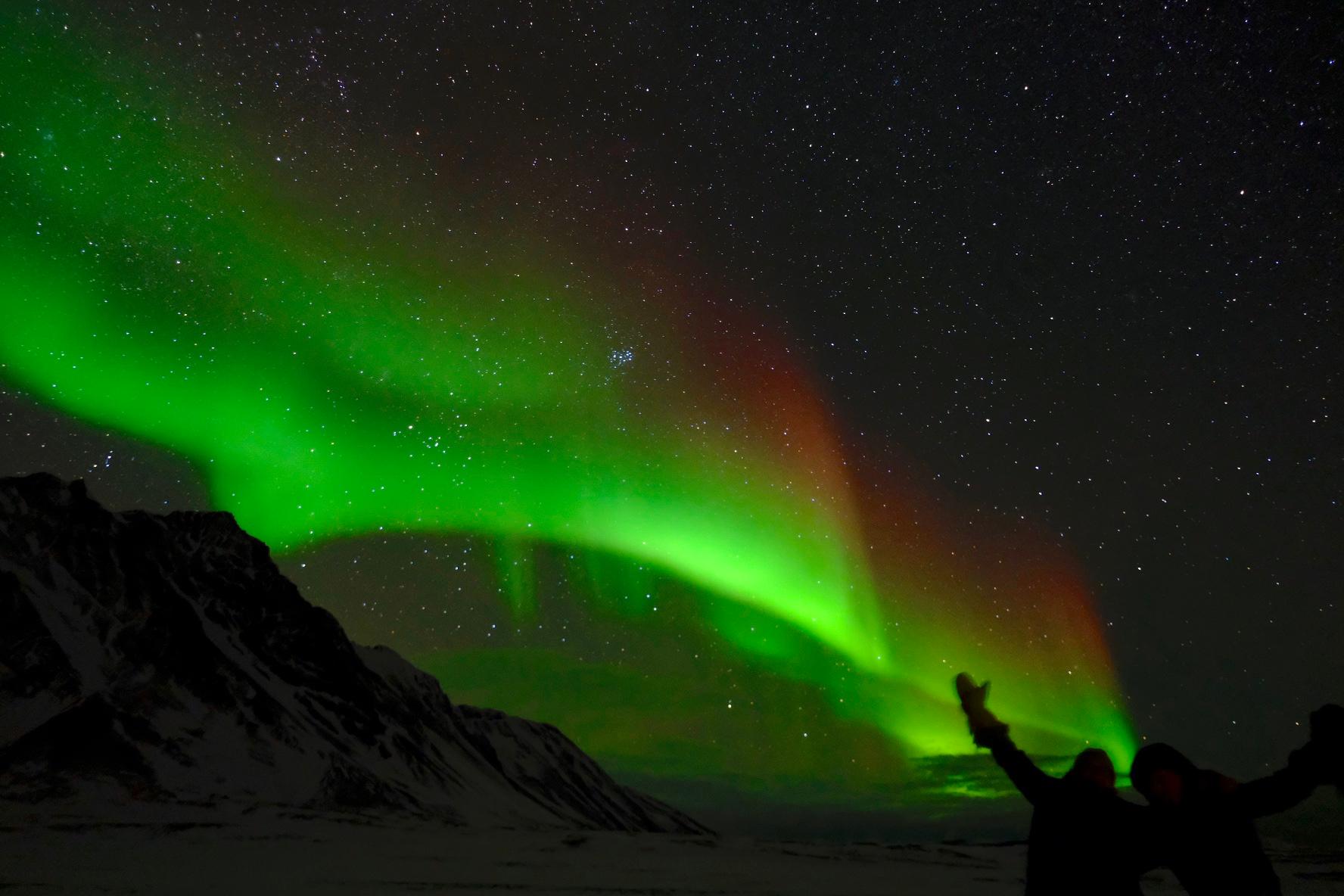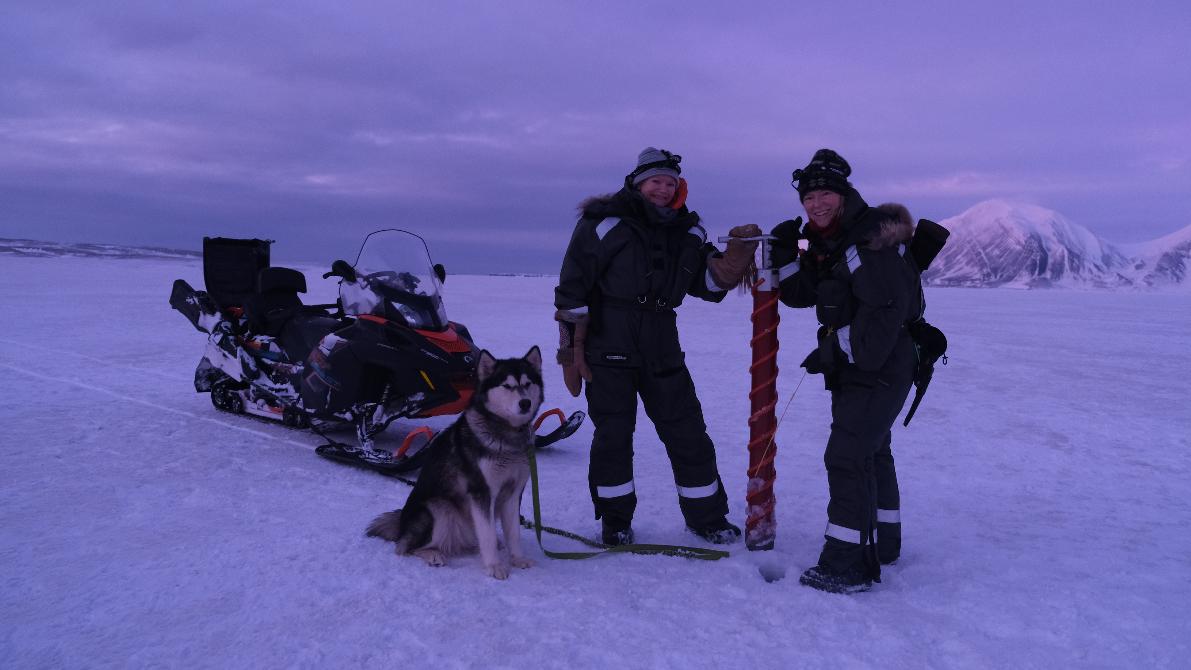Sunniva Sorby (left) and Hilde Fålulm Strøm teamed up with researchers at the Norwegian Polar Institute and the Scripps Institution of Oceanography to record weather patterns, test new technologies for solar and wind energy and observe wildlife behavior in Svalbard, Norway.
For more than seven months, Sunniva Sorby and Hilde Fålulm Strøm have self-isolated by choice in a one-room wooden cabin in Svalbard, Norway — a cluster of islands midway between continental Norway and the North Pole.
The two women in their 50s are “citizen scientists” who have teamed up with researchers at the Norwegian Polar Institute and the Scripps Institution of Oceanography to record weather patterns, test new technologies for solar and wind energy, and observe wildlife behavior in this remote region.
With their nearest neighbor about 100 miles away and with no running water or electricity, Sorby and Strøm have found a few tricks to cope with being alone together.
Those tricks could come in handy, as people around the world spend more time with roommates and family during the COVID-19 pandemic.

Sorby and Strøm start their day reading and writing on their own beds while temperatures rise outside. Sorby says they consider this alone time to be almost sacred as they prepare for a full day of intense togetherness.
“We try to do things together and plan the day together. It doesn’t always happen because we’re normal people — we both have feelings and moods,” Sorby said.
As with any relationship, Sorby says communication has been key.
“If we need something, we ask for it. Like if we need space, or time, or something. We live in a world where sometimes we’re not used to doing that,” Sorby said. “We think that it’s selfish to ask for what we need. But I think that’s the most unselfish thing people could do right now.”
For Strøm, it is important to make space for fun, so they celebrate the end of a working day with music, movies or cooking together. “We always have Friday night every night,” Strom says.
“We put a lot of energy into the meal, into the dinner and we always light a candle. We try to do something special every day.”

Sorby and Strøm were supposed to head back home in early May, after 270 days together at their tiny cabin in the tundra.
But because of the COVID-19 pandemic, the end date for their project is uncertain. Ships are no longer headed to their remote area so they do not know how long their isolated lives will last.
“We’re stripped of all of our “knowns” and all of our comforts from back home. But we’re having the time of our lives,” Strøm said.
Our coverage reaches millions each week, but only a small fraction of listeners contribute to sustain our program. We still need 224 more people to donate $100 or $10/monthly to unlock our $67,000 match. Will you help us get there today?
